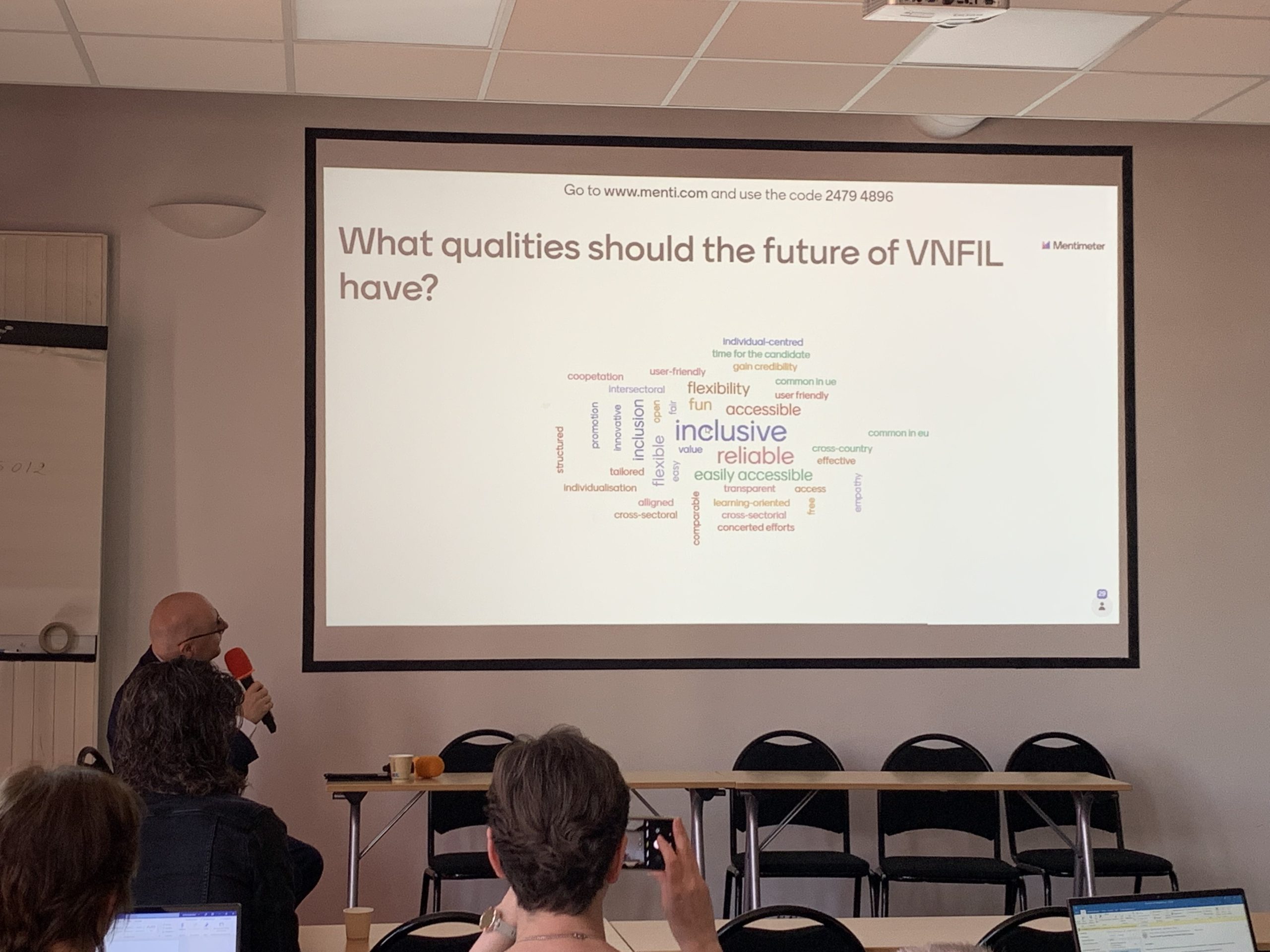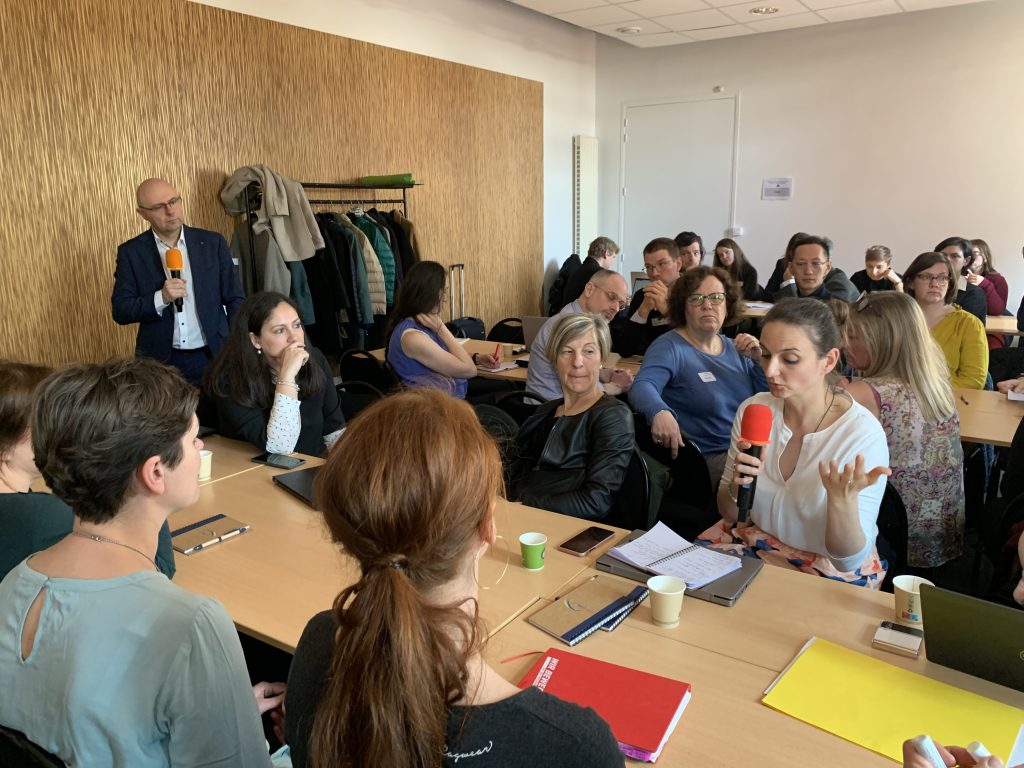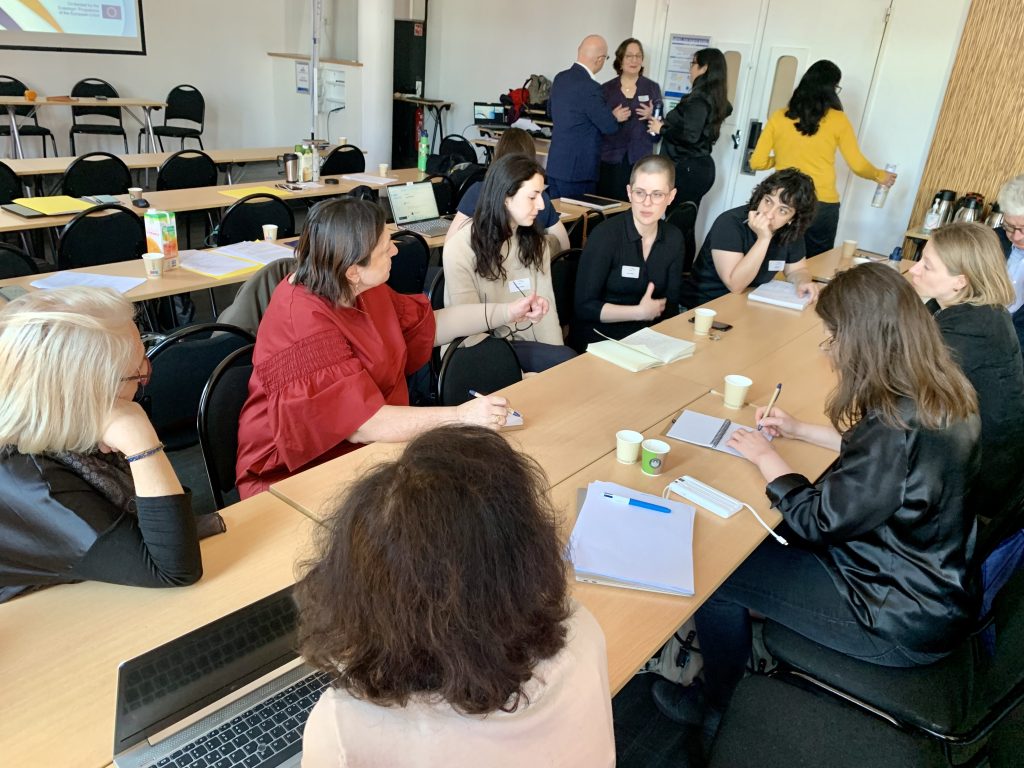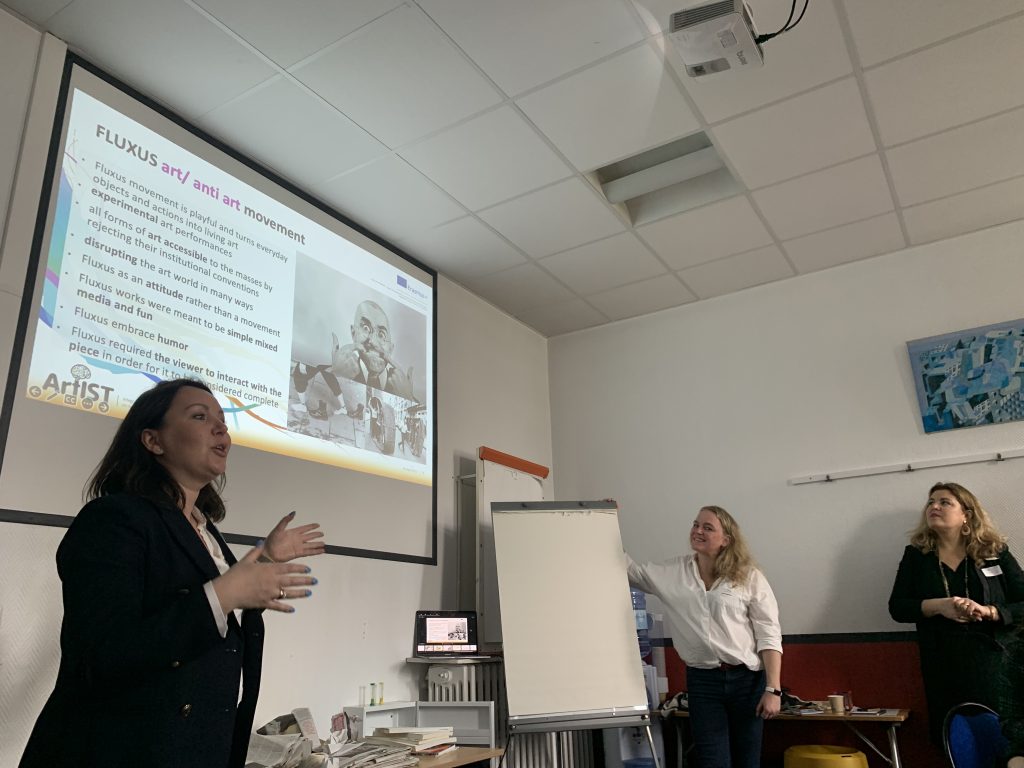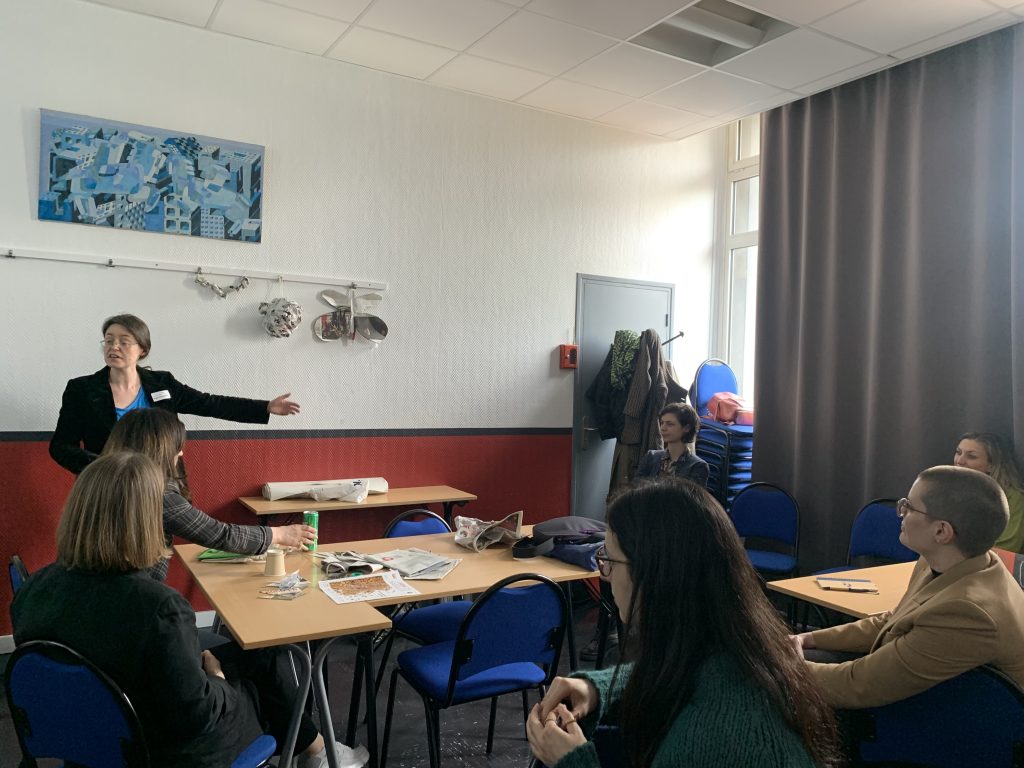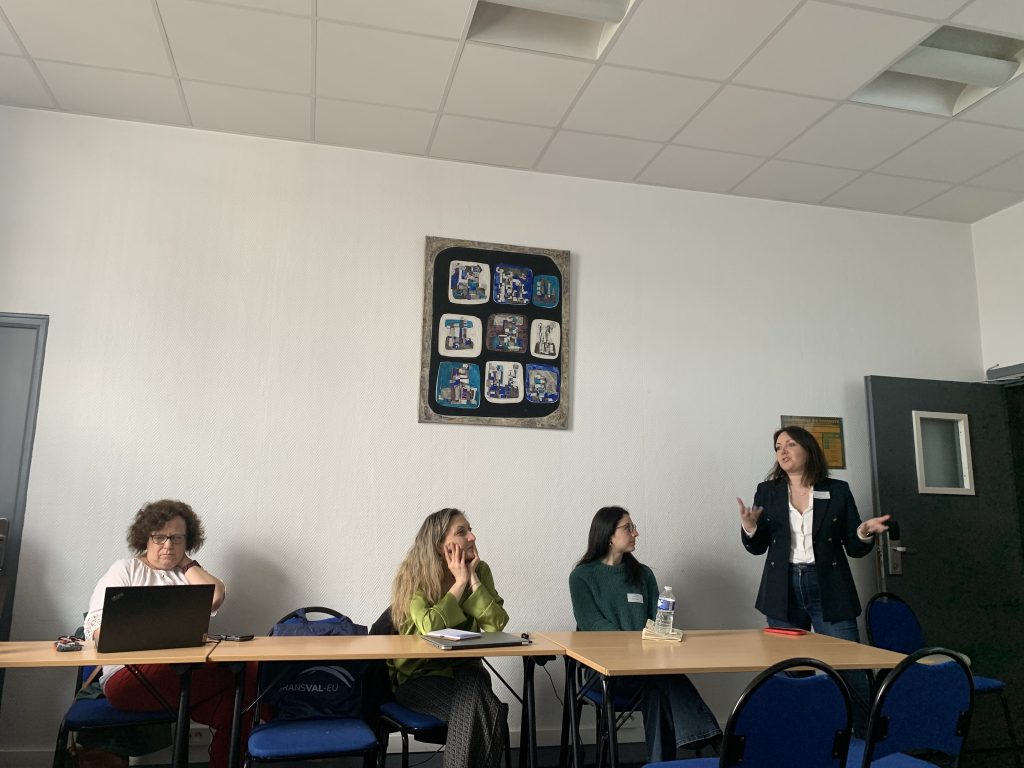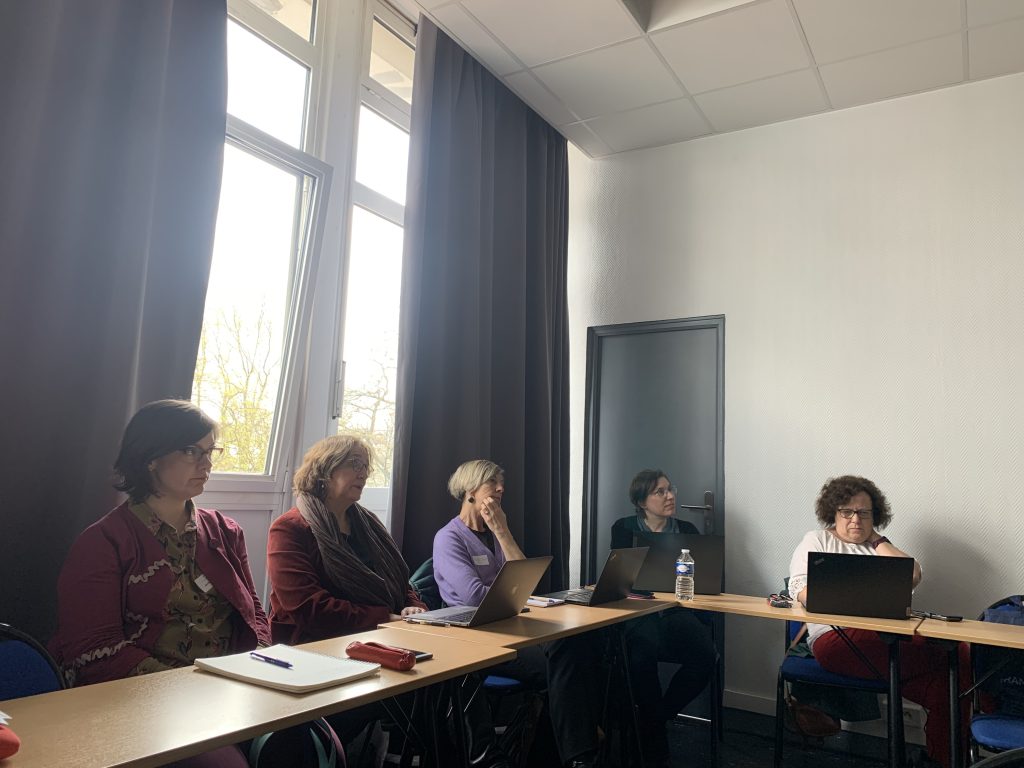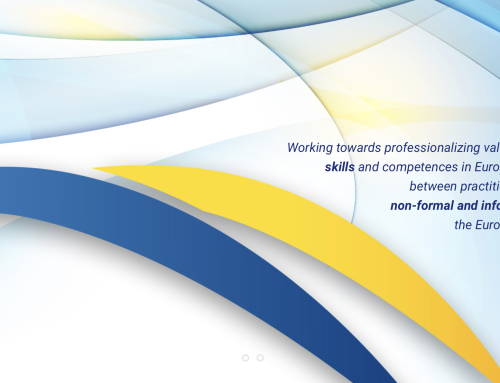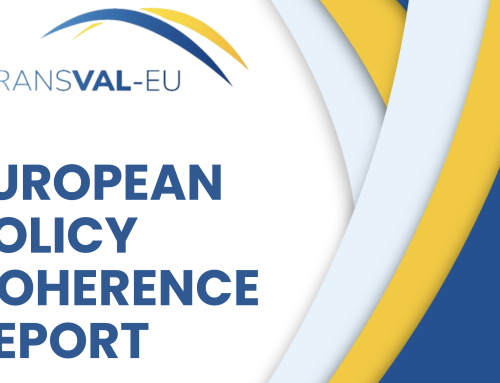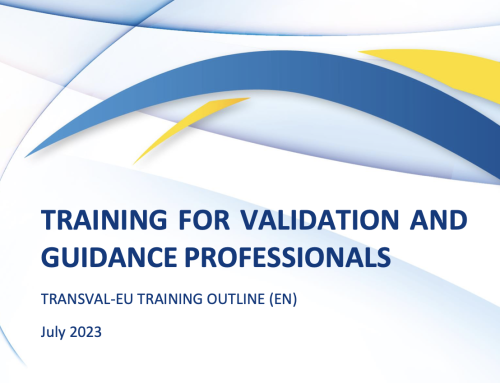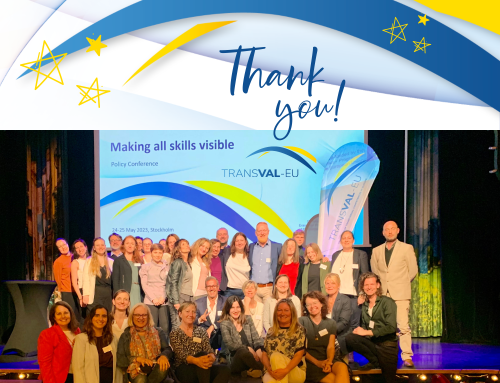European researchers gather in Paris to share findings on strengthening guidance and validation of transversal skills for work and life
European researchers gathered in Paris on 19 – 20 April to share their findings on strengthening guidance and validation of transversal skills and competences, or TSCs. TSCs have been defined as “…learned and proven abilities which are commonly seen as necessary or valuable for effective action in virtually any kind of work, learning or life activity. They are ‘transversal’because they are not exclusively related to any particular context (job, occupation, academic discipline, civic or community engagement, occupational sector, group of occupational sectors, etc.)” (p. 4).[1]
The two-and-a-half year TRANSVAL-EU policy experimentation, which was at the centre of the conference, piloted innovative approaches to guidance and validation transversal skills and competences in five countries (Austria, Belgium, Italy, Lithuania and Poland). The project has:
- explored the state-of-the-art in guidance and validation of transversal skills in Europe
- developed and tested an offer of training toolkits, curricula/programmes
- tested the systematic embedding of transversal skills in validation and guidance processes by the trained practitioners
- developed a standard profile for validation and guidance practitioners with a view professionalisation in the field.
These different research outputs and other research and good practices were explored at the Paris conference.
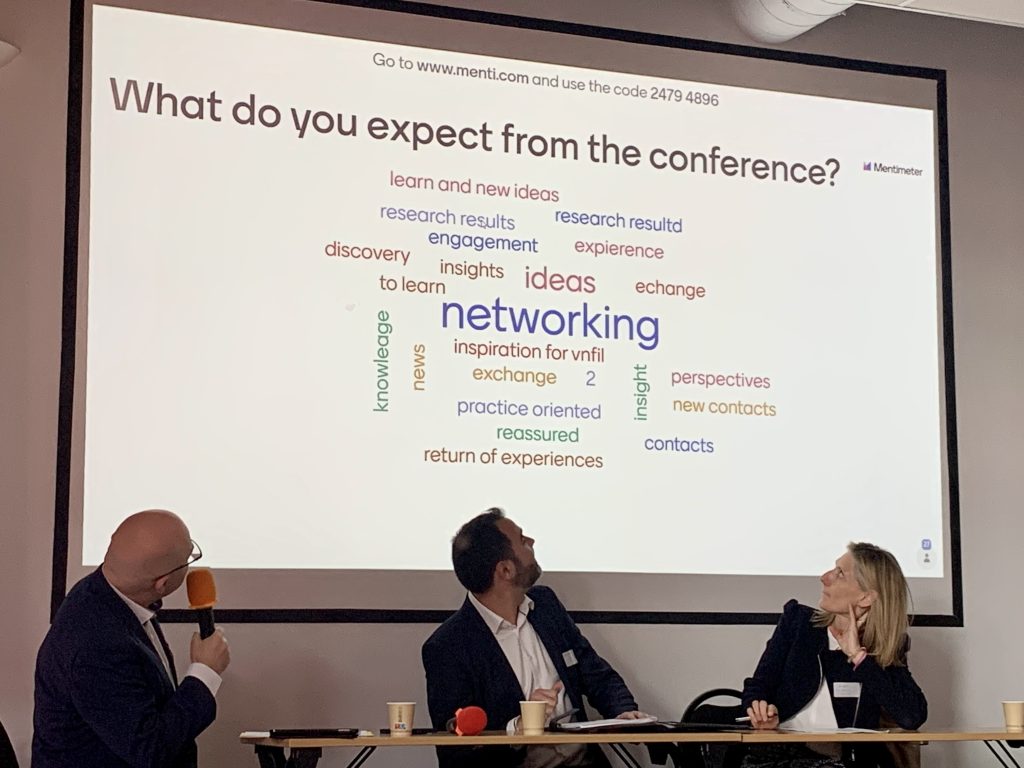
A common international challenge
The need for guidance and validation of transversal skills is a common challenge within and beyond Europe. Glenda Quintini and Michele Tuccio from OECD’s Directorate of Education, Labour and Social Affairs opened the conference with insights from the OECD’s Programme for the International Assessment of Adult Competencies (PIAAC). They highlighted that employers interviewed for the PIAAC Survey have highlighted the need for employees to develop their transversal competences to engage in complex problem solving, including in digital environments. The emphasis on digital environments is important, as PIAAC found that more than 60% of adults have only a basic level of digital competence.
The current version of PIAAC includes new questions regarding social-emotional skills, based on the ‘Big 5 scale’ for self-measurement of competences such as openness to experience, imagination, conscientiousness, extroversion, agreeableness, and neuroticism. Given the importance of context and culture, no international comparisons have been developed. However, the assessment tool is now freely available for anyone to use here in English, Spanish and Portuguese. Based on the results, individuals may compare their profile to a specific job or identify occupations that match their transversal skills and competences.
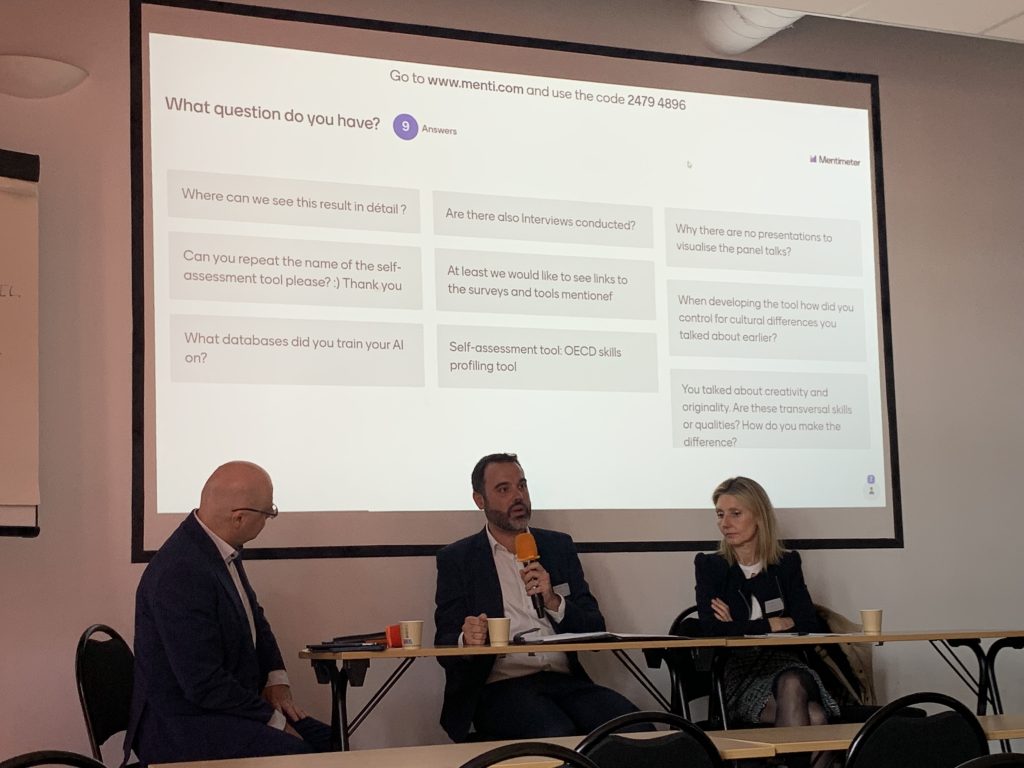
The state-of-the-art in VNFIL and recognition of transversal skills and competences
A second panel included viewpoints of civil society (Brikena Xhomaqui of the Lifelong Learning Platform), policy research (Lieve van den Brande from Vrije Universiteit Brussels), and practitioners (Christine Huynh of Simplon, France).
Brikena of LLLP noted the important role of monitoring and evaluating the impact of different tools used for validation of non-formal and informal learning, including the European Qualifications Framework (although there are challenges to measuring the EQF impact). LLLP has also been promoting new opportunities to strengthen VNFIL, including through guidance and validation of transversal skills and competences. New tools such as micro-credentials (recognising both formal and informal learning), and individual learning accounts have the potential to strengthen VNFIL.
Lieve van den Brande of the VUB emphasised that while change in this field takes time, different tools and frameworks have also created new opportunites to support guidance validation. The emphasis on individual needs can change the way services are provided. Tools such as the “learning outcomes”, which emphasise what an individual knows and can do, can also support VNFIL – including transversal skills and competences.
Christine Huynh of Simplon noted the centrality of transversal skills and competences for their daily work with refugee and migrant learners. Through different programmes, including Refugeeks and Welcode, they place an emphasis on skills such as leadership, the ability to consider points of view and to work in collaboration with others. Motivation, adaptability, and respect of hierarchy and the workplace are also important.
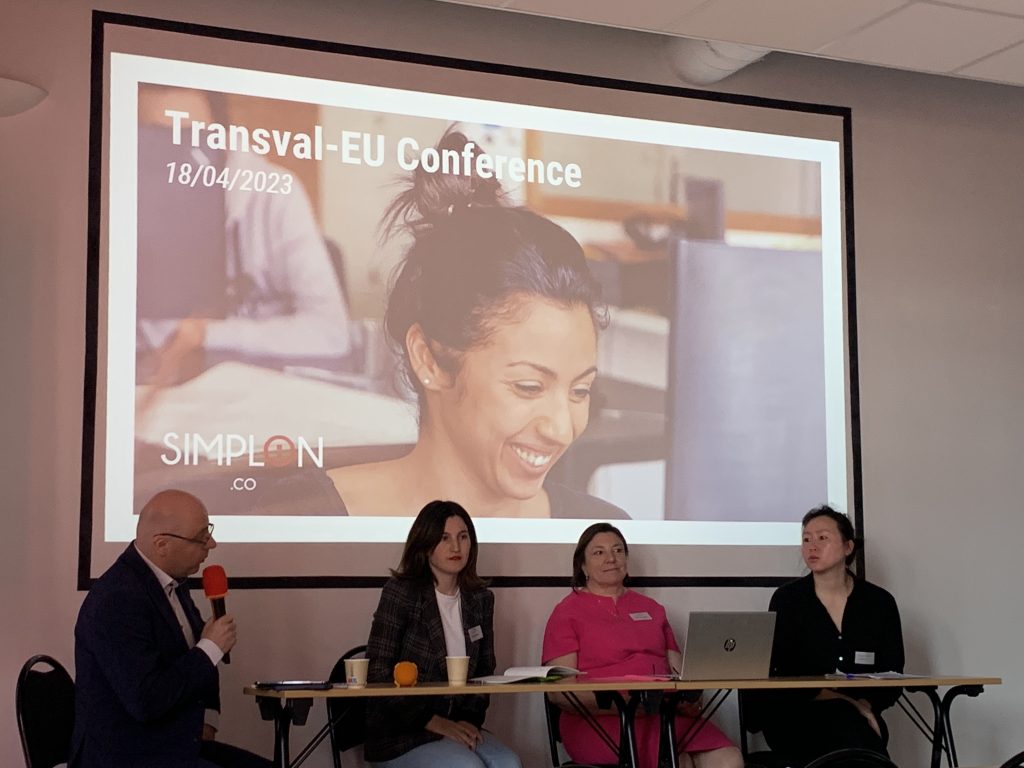
Preliminary TRANSVAL-EU study results point to positive impacts
A third panel focused on the motivation for TRANSVAL-EU research (Karl Andrew Muellner, OeAD, Austria’s Agency for Education and Internationalisation), the baseline study on the state-of-the-art in on validation of transversal skills across Europe Janet Looney (European Institute of Education and Social Policy), and early results of the TRANSVAL-EU policy experimentation (Maurice de Grief, Vrije Universiteit Brussels, and Julia Fellinger, 3S Austria).
The first results from the evaluation of the TRANSVAL-EU interventions show positive impacts, particularly for learners. A majority of learners participating in the pilots indicated a greater awareness of their transversal skills as a result of the guidance and tools, including their communication skills, digital skills, capacity to solve problems and react to unforeseen events, their capacity for cooperation, and for building a career path, among other transversal competences.
While practitioners participating in the study were already confident in their ability to provide guidance and validation of transversal skills, many did find that the tools being piloted helped them to evolve.
The impact study also pointed to differences between the countries where the training and tools were piloted – and these differences need to be taken into account at the policy level.
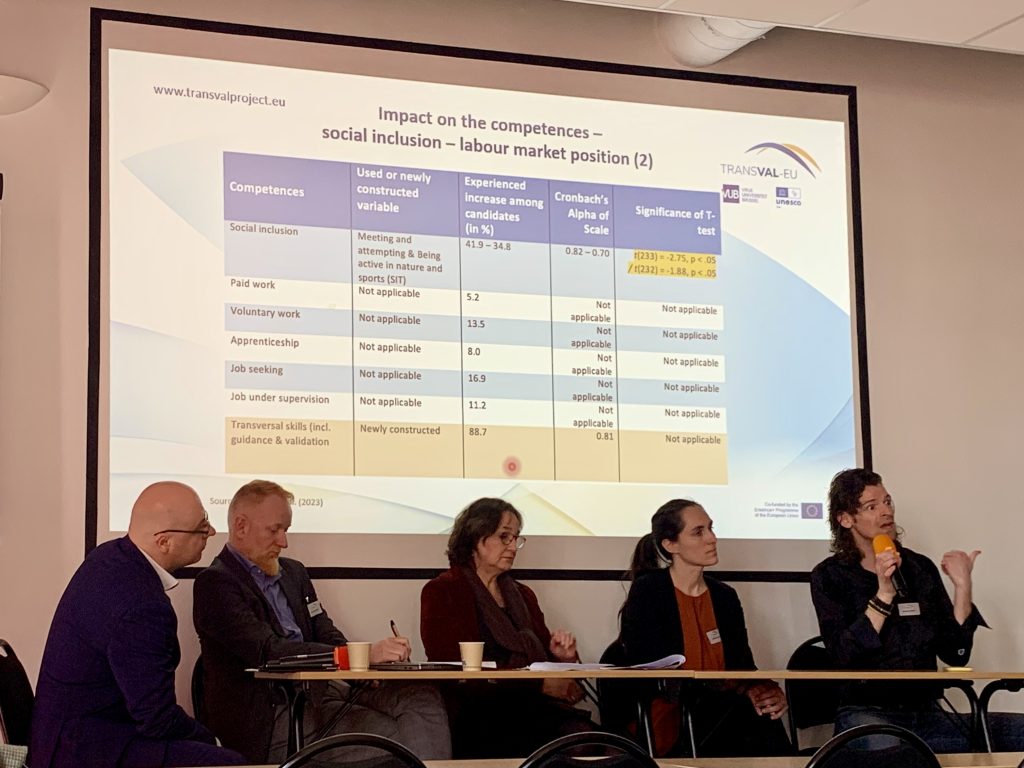
A range of good practices support guidance and validation processes
The TRANSVAL-EU Research Conference also included panels and workshops featuring a variety of good practices important for guidance and validation process. These included:
- EQF and transversal skills: What can be learned from qualification frameworks for the assessment of transversal skills? (Julia Walder, OeAD, Austria’s Agency for Education and Internationalisation)
- Creativity in borderline situations: and the FLUXUS art (anti art) tools for developing transversal and unconventional skills (Anne Berthinier-Poncet and the ArtIST 1 Team)
- The bridge between research and guidance and validation practice (Maurice de Greef, Vrije Universiteit Brussels)
- Gender equality in VNFIL (Sylvia Liuti, FormAzione)
- Impact of learning and guidance. What do research results tell us? (Maurice de Greef, Vrije Universiteit Brussels)
- Quality assurance for VNFIL (Per Andersson, Linköping University)
- Skills Audit methods (Barbara Fijakowski, Education Research Institute-IBE)
Specific good practices were shared in a panel discussion, including applications of design thinking methods in VNFIL (Iwona Gmaj, Insight); a solution-problem-based approach to identifying transversal competences (Laura Profiri, Pluriversum), and European perspectives on professionalisation of validation practitioners (Karin Gugitscher and Judith Proinger, Austrian Institute for Vocational Education Research).
Presentations from these workshops and panels will soon be available on the TRANSVAL-EU website.
Some reflections on TRANSVAL-EU policy experimentation
The TRANSVAL-EU study has stimulated cooperation among stakeholders and researchers and has also provided a platform which can welcome new members and a foundation for further research and a community for sharing of good practices.
Guidance and validation practitioners have been an important part of the TRANSVAL-EU study. They have a special role in supporting learners along their individual paths. Indeed, this focus on the individual is also a key element in considering how to strengthen overall systems. A next step will be to engage with employers when and where appropriate.
Additional benefits of international policy experimentation include peer learning and sharing of lessons among countries, and engaging with policy makers who can take necessary next steps to support effective validation processes.
Looking to the future of VNFIL and transversal skills and competences
While technological change is an important focal point in our thinking about the future, workforce planning needs to be human-centred, panelist Steven Dhondt emphasised. Conference attendees also reinforced this point, indicating that important qualities for VNFIL provision include user-friendliness, accessibility, empathy, cooperation, and tailored and structured provision, and
Conference attendees also shared their views on needs for future research and development. For example, it will be important to consider who is included and who is excluded from the workforce. Individuals with mid-level skills and competences are frequently in the latter group, and their training needs should be addressed.
More peer learning on what has worked well in addressing needs of the excluded, as well as what has worked less well will be important. Collaboration with employers and a better understanding of their needs will be important. Employers need to trust the validation process is relevant to their needs and is reliable. They also need ensure effective recruitment, training and retention of employees. It was emphasised that companies are ready to invest in training and are happy to support employee mobility. When futures are uncertain, they want to be sure that employees will be able to move on if need be.
Other development needs include a common vocabulary which can facilitate communication as well as sharing of tools for certification which can support countries.
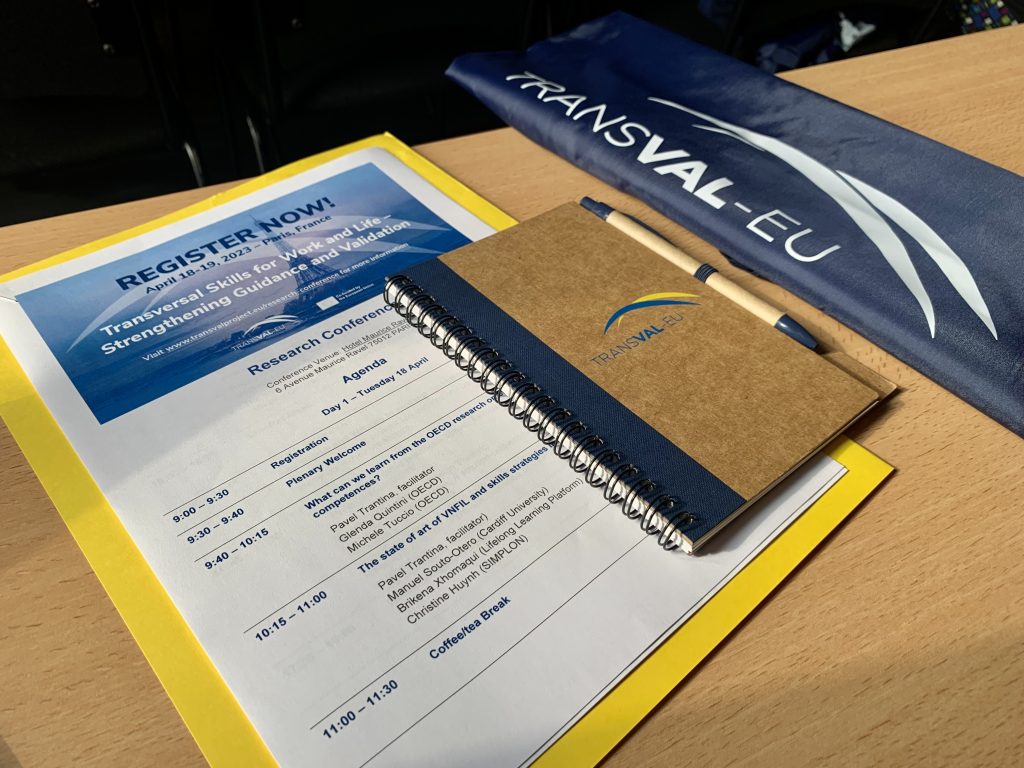
Next steps for TRANSVAL-EU
The April 2023 Paris conference was the penultimate event for the TRANSVAL-EU study. A final event – the European Policy Conference – will be held in Stockholm 23 – 24 May 2023.
The conference will provide opportunities to discussion European-level policy measures, share good practices from different countries and regions in the EU, build on tools and practices piloted in the TRANSVAL-EU project, and support networking among stakeholders.
[1] Hart, J., Noack, M., Plaimauer, C. and Bjørnavold, J. (2021). “Towards a structured and consistent terminology on transversal skills and competences” 3rd report to ESCO Member States Working Group on a terminology for transversal skills and competences (TSCs) https://esco.ec.europa.eu/system/files/2022-05/MSWG%2014-04%20Report%20of%20the%20expert%20group%20on%20transversal%20skills%20and%20competences.pdf
